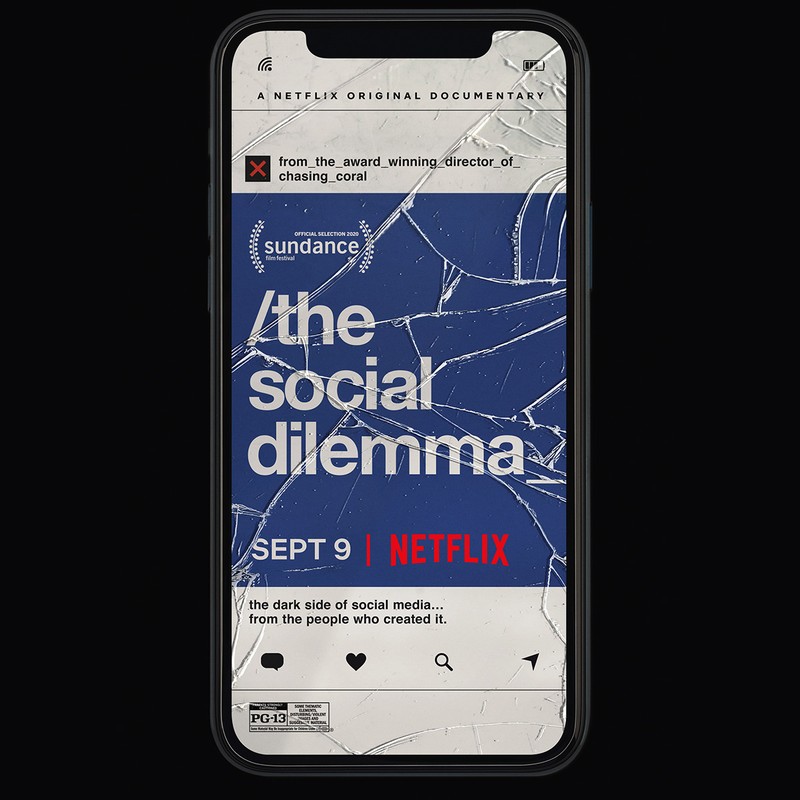
What To Watch This Week: The Social Dilemma
“If you’re not paying for the product, you are the product.” This is just one of the stark takeaways from this new Netflix documentary from award-winning filmmaker and environmentalist Jeff Orlowski. As digital platforms increasingly become a lifeline to help us stay connected, this taut 90-minute film reveals how social media is reprogramming civilisation by exposing what’s hiding on the other side of your screen. Trust us, it’ll open your eyes.
At its core, The Social Dilemma explores the process of surveillance capitalism, and how human data is the new currency. Using powerful, hidden artificial intelligence tasked with hijacking our attention, the film argues that social media is being used to “tear apart social norms, jeopardise truth and democracy, and put civilisation on a programmed path toward self-destruction”. Expert testimony from tech whistle-blowers exposes this disturbing predicament: the services tech companies provide – search engines, networks, instant information – are just there to reel us in. Once we’re hooked, the real commodity they sell is our data. As Shoshana Zuboff – professor emeritus at Harvard Business School and author of The Age of Surveillance Capitalism – puts it: “It’s a new marketplace – one that trades in human futures.”
The core strength of The Social Dilemma is its collection of high-profile technologists, researchers and activists who – having created some of the biggest social media platforms in the world – are now working to align technology with the interests of humanity. Among the talking heads are Tristan Harris, a former Google design ethicist; Jeff Seibert, former senior director of product at Twitter; Justin Rosenstein, a former engineering lead at Facebook (he created the ‘like’ button) and former product manager at Google; and Tim Kendall, former director of monetization at Facebook and former president of Pinterest. When you’ve got early investors and those who helped create the platforms telling us we shouldn’t be using them, it makes for quite the wake-up call.
Away from this expert insight, the film really connects with its audience through a narrative that’s weaved throughout the interviews. The story focuses on a family of five and each of their relationships with their devices. Most memorably, three fictional men – acting as an algorithm – plot how to make the teenage son spend more time on each app, gradually learning everything there is to know about him – from his ex-girlfriends to the time he has a break at school each day – so they can manipulate his actions. Through him, we learn how extreme political content can seep its way into people’s feeds and how conspiracists thrive in this increasingly divisive environment. Then there’s his younger sister, who shows how image driven sites have made society, and the impact this has had on a generation who have grown up with filters and fishing for ‘likes’ as the norm. Her story goes on to highlight some truly shocking stats around suicide rates in teenage girls over the last decade.
It’s not all doom and gloom, though. In the film’s final minutes, the tech insiders offer achievable ways to help you beat the system, limit social media usage and prevent the dystopia painted in the film from descending in the future. The fact that many of these Silicon Valley techies don’t allow their own children to use social media tells you almost everything you need to know about the darkness that underlines the heart of this film. A challenging, but necessary watch.
The Social Dilemma is available to watch now.
Visit Netflix.com
DISCLAIMER: We endeavour to always credit the correct original source of every image we use. If you think a credit may be incorrect, please contact us at info@sheerluxe.com.

